The windows are dark and the steam table is empty on Saturday at Every Little Thing Jamaican, a grocery store and takeout food business in Suisun City. The owners, like about 12 percent of Jamaicans, are Seventh Day Adventists, and Saturday is their day of rest. But come Sunday the line may stretch to the door of the 1,300-square-foot space, winding through aisles stocked with canned cheese, dumpling mix and ginger beer.
The first arrivals at 11 are here for breakfast, when the main course is ackee and saltfish, often called the national dish of Jamaica. In the pan, it looks like your average brunch buffet scramble, but take a closer look and you’ll see that those yolk-yellow curds are something other than eggs. This is ackee, a fruit native to West Africa that is poisonous when green; when ripe, the lobes of flesh that surround its jet-bead seeds mellow into something like panna cotta. It’s a delicate foil for the potent flakes of saltfish, dried and salted cod that was valued for its longevity in the days before refrigeration.
The ubiquity of the North Atlantic fish in Jamaican cuisine is a remnant of three centuries of British rule, during which the first ackee seeds likely arrived on a ship carrying enslaved West Africans to the sugar plantations. But ackee and saltfish — sparking with scotch bonnet and black pepper — is a uniquely Jamaican combination, one of the many points of joy Jamaicans forged from centuries of hardship. It makes for a bracing breakfast, especially when accompanied by one of two sets of starches available here: fried plantains and johnnycakes (knobs of fried dough that taste lighter than they look) or relatively virtuous boiled dumplings, bananas and yam.
The 1,300-square-foot space holds mostly frozen and shelf-stable
Caribbean products, plus a hot food counter.
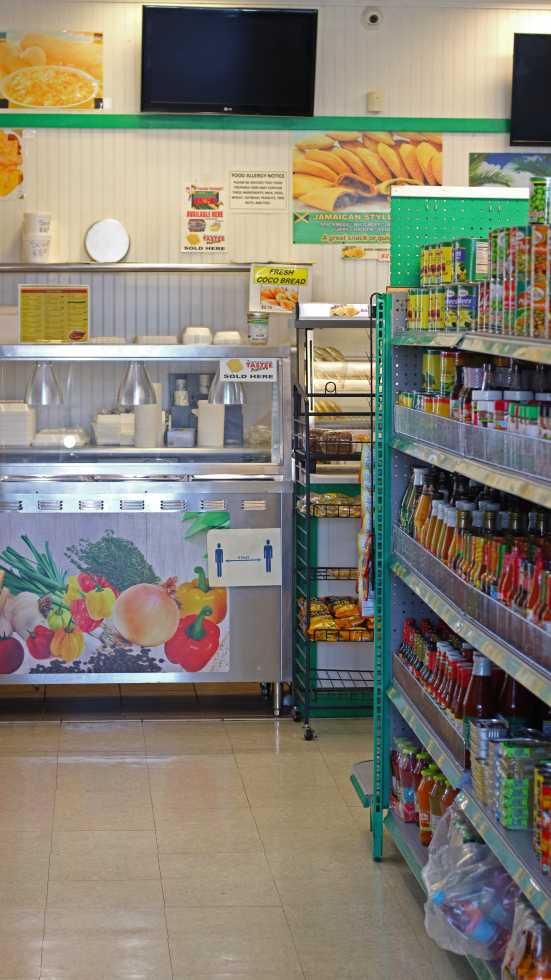
The business is clearly not struggling from its decision to stay
closed on Saturdays. “When we started out, we had a lot of people
who ridiculed us, and some actually turned up their nose at
that,” says Victor Headley, who co-owns the business with his
wife Pauline Headley. “We close on the Sabbath and we don’t have
enough things to sell when we come on Sundays. So it’s just one
of those blessings we’ve had.”
Victor Headley co-owns Every Little Thing Jamaican with his wife,
Pauline Headley.
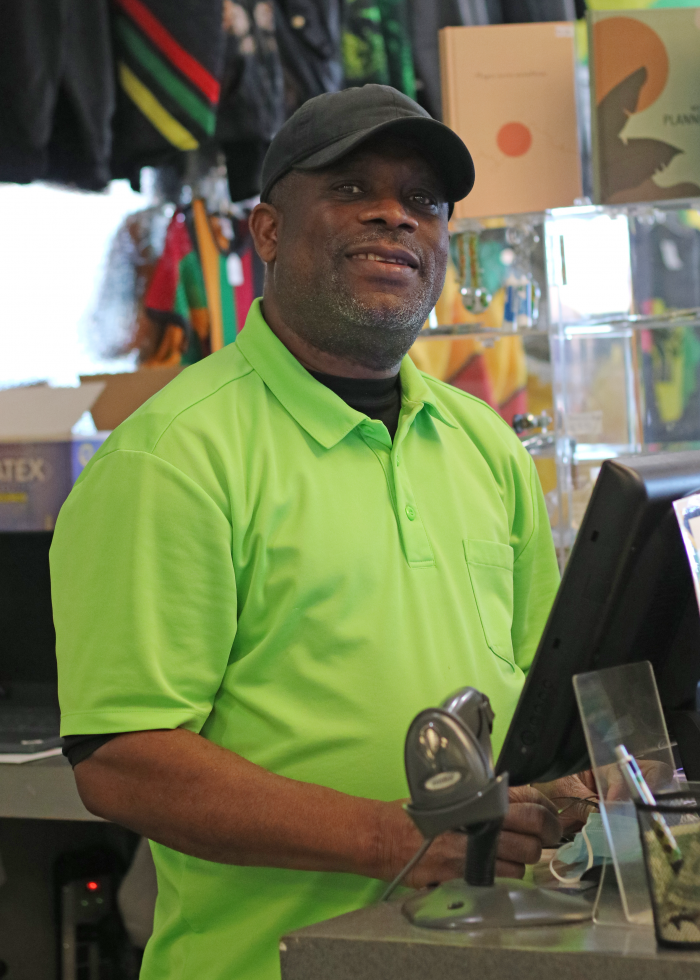
This faith-based approach defines how the Headleys do business — faith in their religion and in the likelihood that everything will turn out fine. Originally from the Jamaican parish of Trelawny, the couple moved to California in 2006 when Pauline, a registered nurse, got a contract to work at a hospital in Sonoma County. Victor ran a custom clothing business in Jamaica but took a job in a hardware store after the move. “I’ve never worked for anybody before I came here … so that job felt a little bit awkward,” he says. “I always have a desire to do my own thing.”
About five years ago, he saw his opening. At the time, the Headleys had to drive to Oakland to buy the Caribbean products they missed. “You crave for those things that you grew up on, and we realized that it was a little challenging finding these things around here, so we decided that chances are there might be other people around who might be thinking the same thing,” he says. “I said to my family, OK, let’s sell these things, and if nobody buys them, then we will eat them.”
Oxtail is one of the most popular items at Every Little Thing
Jamaican, but it’s only available on Tuesdays and Thursdays.
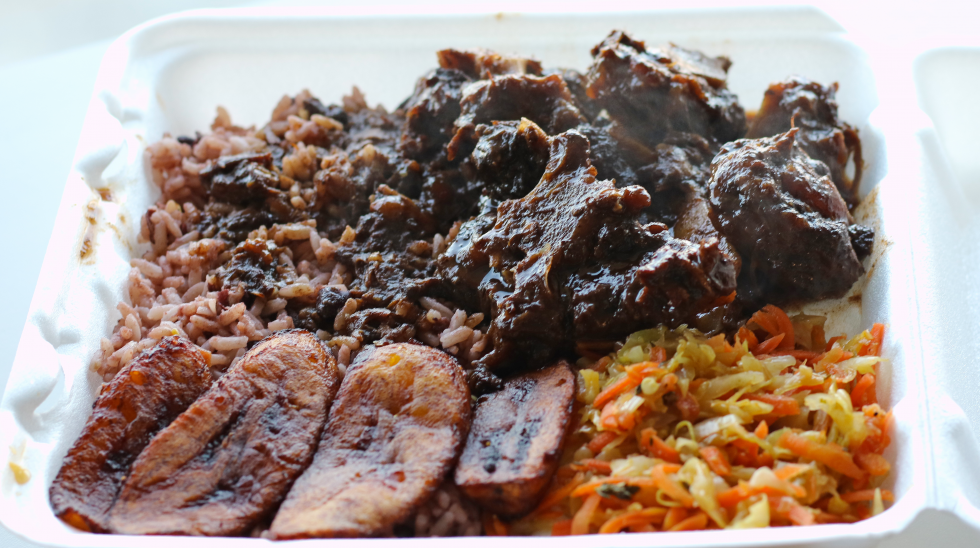
Every Little Thing Jamaican opened in 2017, at first selling mostly shelf-stable and frozen goods trucked in from distributors in Miami. “But then we’d have people walk in the store, just make a U-turn and be like, ‘Oh, sorry, I thought you guys had food,’” Victor says. Later that year, he and Pauline decided to add a kitchen to the space and hired her brother, who worked as a chef in Jamaica, to take the helm. Pauline’s mother, who Victor calls “a young 80,” also stops in to offer advice.
Plain and spicy beef patties, the latter stamped with a warning,
are sold hot or frozen at Every Little Thing Jamaican.
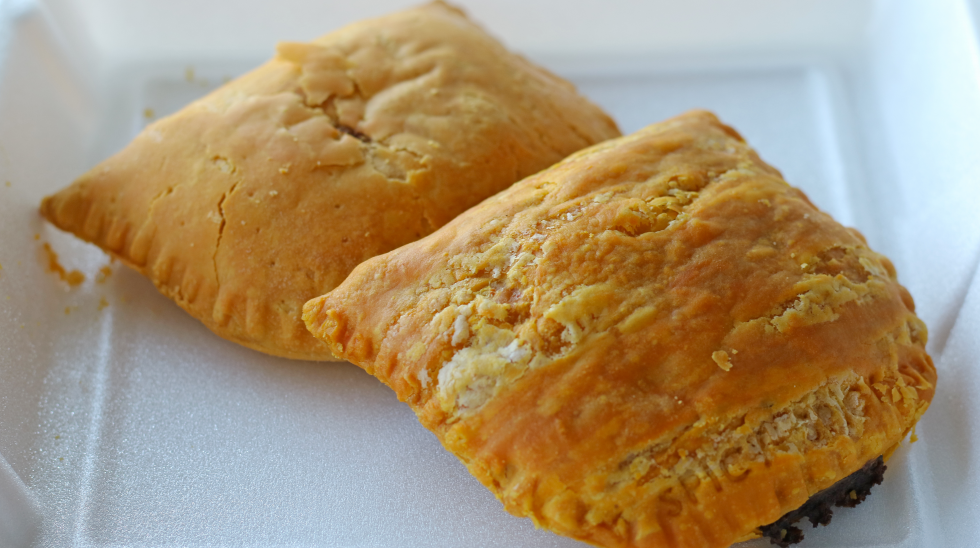
The 2,400-square-foot location in the same plaza will have space for a small dining area (the current shop is strictly takeout-only), a restroom and a larger kitchen, which may allow for more opportunities to snag quick-selling dishes like curry goat and oxtail, both simmered so tender even the bones seem to approach dissolution. The market will remain a major part of the business.
A sign advertises Jamaican sauces and seasoning beside Jamaican
and Pan-African regalia at Every Little Thing Jamaican.
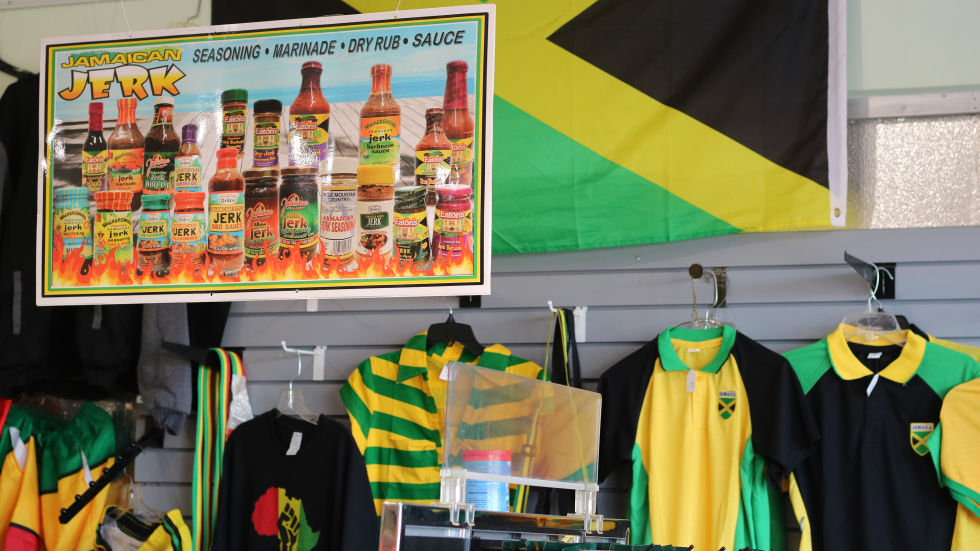
“I have had people walk in the store and buy things and when they walk out with it, I know they have no use for it. They just bought it because they can identify themselves with it and bring back that feeling,” Victor says. “They can reminisce, they can go back in the past and they can embrace some of the things that they used to have. That gives me a lot of pleasure.”
–
Stay up to date on business in the Capital Region: Subscribe to the Comstock’s newsletter today.
Recommended For You
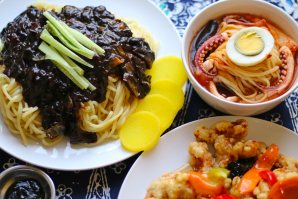
Neighborhood Favorite: Smile Market 2
The second branch of a longstanding supermarket serves Korean Chinese food
After more than 20 years selling Korean specialty items, the owners of Smile Food Market opened Smile Market 2, which serves fresh dishes like spicy seafood noodles and sweet-and-sour pork.
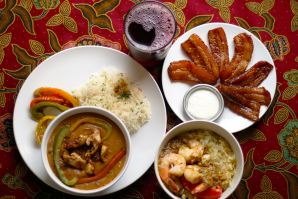
Neighborhood Favorite: Chulla’s Cafe
A political-scientist-turned-restaurateur brings a globalist approach to African fusion
The Chulla’s Cafe menu borrows influences from African,
Asian, Latin American, South European and Pacific coastal
regions.
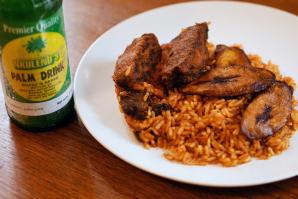
Neighborhood Favorite: Naija Cuisine
Sacramento’s only Nigerian restaurant gets a boost from TikTok
Fufu is a West African staple food made from boiled, pounded
cassava or other starches, and it’s trending on TikTok.
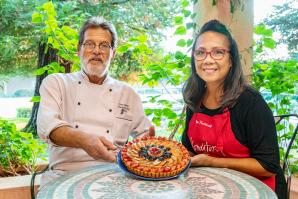
Neighborhood Favorite: Konditorei Austrian Pastry Café
How a ballerina and a baker built a Viennese pastry shop in Davis
Anyone who has visited the coffee houses of Vienna will see the
resemblance between those venerable institutions and Konditorei
Austrian Pastry Café in Davis.
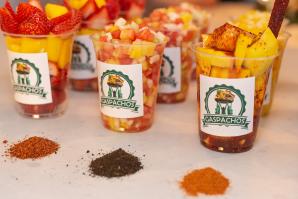
Neighborhood Favorite: Gaspachos
Four siblings bring a Michoacan specialty to Franklin Boulevard
Gaspachos in south Sacramento does not serve gazpacho, the
Spanish chilled tomato soup. Here and in Morelia, Michoacan,
gaspacho is something else entirely.



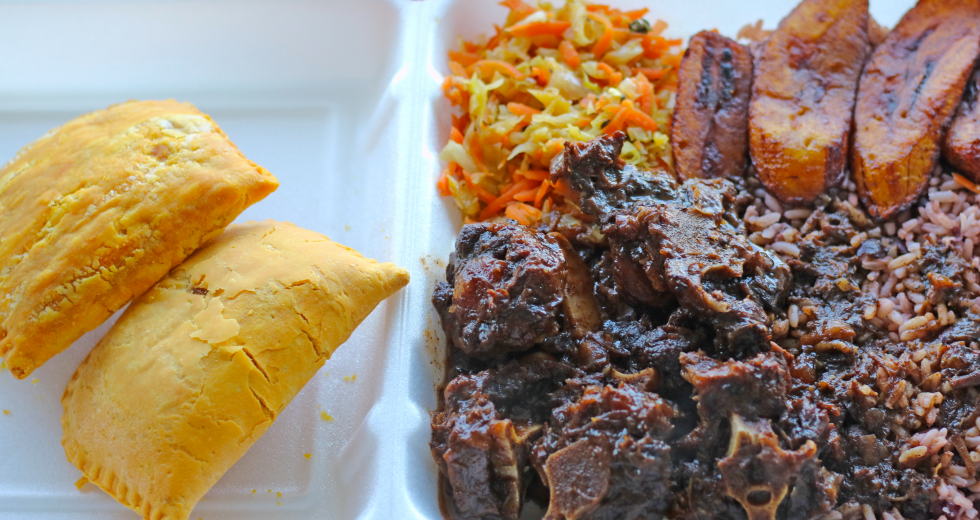
Comments
Great business venture and very rewarding, can't wait to partake. Blessings to my family